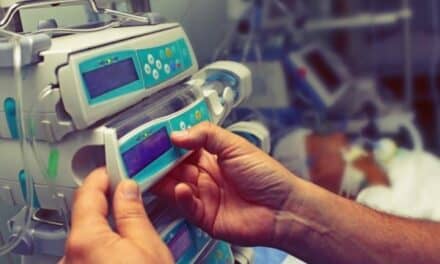3D LifePrints, a U.K.-based medical and ISO 13485 certified 3D-technology company, has unveiled expansion plans to bring its point of care business model to the United States. Supported by the Association of British Healthcare Industries (ABHI), the expansion is currently part of the ABHI U.S. Accelerator program in partnership with Dell Medical School, based in Austin, Texas.
To assist with this long-term strategic move in the United States, the company has added American physician and former National Aeronautics and Space Administration (NASA) astronaut Scott E. Parazynski, MD, to its leadership team and board of directors. In May 2016, Parazynski was inducted into the U.S. Astronaut Hall of Fame, and he is also the first person to have both flown in space and summited Mount Everest. Since retiring from NASA, Parazynski founded Fluidity Technologies, a company that aims to manufacture and distribute novel control devices for mobility in 3D space.
“3D printing is revolutionizing the healthcare industry across the globe, providing surgeons and clinicians with patient-specific products and services in order to improve patient outcomes and reduce costs,” says Paul Fotheringham, founder and chief technology officer of 3D LifePrints. “We are delighted to begin our international expansion in the United States, where we are already able to provide a range of our state-of-the-art 3D medical solutions. It is also a huge honor for us to welcome [Parazynski] to our leadership team—to have attracted a figure of his caliber demonstrates the ambitions of our company.”
3D LifePrints will open its first U.S. embedded medical 3D-printing facilities in Texas. The team will work closely with surgeons and clinicians at host hospitals to provide 3D solutions, initially including bespoke virtual and 3D-printed, patient-specific anatomical models, as well as custom-made surgical simulation and training devices. These devices are used across a range of surgical specialties, including pediatric, cardiothoracic, orthopedic, oncology, and craniomaxillofacial.
In the future, the company plans to launch point-of-care hubs in a number of other states, in partnerships with U.S. hospitals. The goal is to provide in-house 3D medical printing services that can support hospitals in lowering their operational costs and improving patient outcomes, according to the company. 3D LifePrints also offers a remote service via its digital platform, EmbedMed.
The point-of-care service includes biomedical engineers, a range of advanced 3D-printing hardware, and a suite of software. The embedded nature provides the host institution with all of the benefits of having an in-house service, including ease of access to an engineer and immediate delivery of devices, according to the company.
“We are thrilled to hear of 3D LifePrints’ success in the United States, whose unique business model and technologies are helping to advance care both for patients and clinicians,” says Paul Benton, managing director for International ABHI. “I am delighted that through programs like the U.S. Accelerator, U.K.-based companies can find the opportunity to connect with new partners and extend the benefits of their services.”
Featured image: In their first international expansion, U.K.-based 3D LifePrints is opening embedded medical 3D-printing facilities in Texas.





